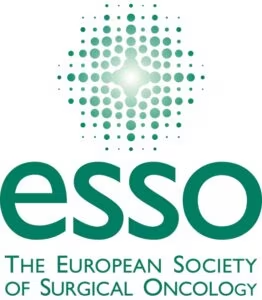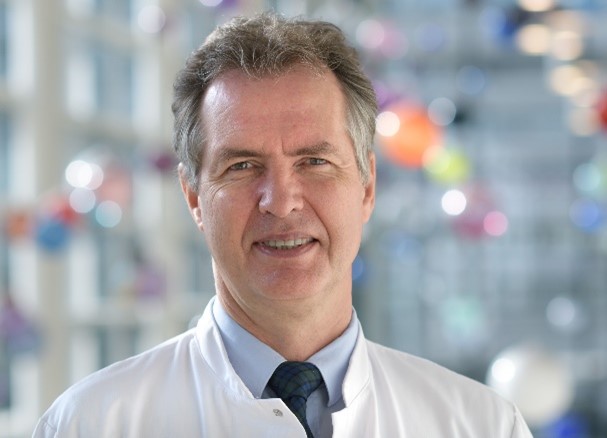

Professor Geerard Beets, President of the European Society of Surgical Oncology (ESSO), is a distinguished leader in surgical oncology and colorectal cancer research. With an impressive career spanning roles at Maastricht University Medical Centre and The Netherlands Cancer Institute, his work focuses on improving rectal cancer imaging, organ preservation, and integrating immune checkpoint inhibition in treatment. As ESSO President for 2024–26, Professor Beets is dedicated to fostering collaboration, advancing cancer surgery education and ensuring surgical oncologists are equipped to provide exceptional patient care. In this interview, he shares insights into ESSO’s strategic vision, priorities and his passion for driving progress in the field.
“Greetings to all cancer surgeons in Europe and beyond! As the new ESSO President, I want to assure you that ESSO will take care of your needs – whether you are a practicing cancer surgeon or a future one. We are here to support, educate and collaborate, ensuring that the next generation of surgical oncologists is well-equipped to provide the best care for cancer patients. I’m excited and honored to lead ESSO in this important journey, working together to advance the field of surgical oncology.”
Q1. Where are we now in the ESSO strategic plan 2023–25, and what can we expect in a year?
Our strategic plan for 2023–25 is ambitious and aims to future-proof ESSO by rebuilding the organization and refining how we operate. While much of this work is behind the scenes, we are on track to make a significant impact. We aim to collaborate more with national societies and societies in other fields like radiology, radiotherapy and medical oncology to enhance cancer treatment. Strengthening cancer surgery’s profile in patient care is also a key goal, and we’re committed to improving the management of cancer patients holistically.
Q2. What are the priorities for the ESSO Board of Directors in 2025?
In 2025, the Board will continue to focus on the strategic goals we’ve set out. Key priorities include expanding our educational programs, furthering strengthening collaborations with other societies, and enhancing the profile of cancer surgery in patient care. Advocacy for cancer patients and health policy makers is critical, ensuring they understand the full scope of cancer surgery beyond the technical aspects, and to ensure that surgical oncologists’ contributions to cancer treatment are fully recognized. We aim to support research and reinforce the importance of cancer surgery within the broader healthcare landscape. Most importantly, we will invest in nurturing future generations of surgical oncologists, ensuring they are well-prepared to care for patients.
Q3. Where does the passion of the ESSO community come from?
The passion within the ESSO community stems from the deep emotional connection we, as surgeons, have with our work and patients. Surgery is an invasive and transformative field, and the impact we have on patients’ lives is profound. It’s a highly personal experience, where we are not just performing procedures but engaging with patients in their journey. This sense of responsibility and the tangible effects of our work create a strong emotional bond to the profession. The desire to improve outcomes for cancer patients and be a part of their healing journey is a powerful motivator, driving surgical oncologists to excel and dedicate themselves to advancing the field.
Q4. What do you want to say to ESSO members?
Keep striving for excellence in your practice and stay proud of the work you do. ESSO is here to support you in your professional growth, and together, we can foster an environment that celebrates excellence in cancer surgery. Your passion and dedication are what make this community strong, and I am committed to ensuring that ESSO continues to provide the resources and opportunities you need to grow as surgeons and leaders in the field. Let’s continue working together to enhance the quality of cancer care, improve outcomes for patients, and nurture the next generation of surgical oncologists who will carry on this important work.
Q5. How do you see your role in ESSO?
As ESSO President, I will be responsible for overseeing the Society and its Congresses over the next two years. This is a significant role, filled with both honor and responsibility. ESSO has been built by strong foundations, and I look forward to continuing the work of those who have led before me, advancing the Society and making sure it continues to support our members and the broader oncology community. I’m excited to contribute to the growth and success of ESSO in this new chapter.
Geerard Lucien BEETS
Geerard Beets is Professor in Surgical Oncology and Chair of the Department of Surgery at Maastricht University Medical Centre in The Netherlands. He previously worked in the same Department, moved to The Netherlands Cancer Institute in Amsterdam in 2015, and now returned to Maastricht. His clinical field of expertise is colorectal cancer, with multidisciplinary research focused on rectal cancer: MR imaging of rectal cancer, outcome research and organ preserving treatment of rectal cancer, and on the use of immune checkpoint inhibition in colorectal cancer. This resulted in many papers, PhD theses and invited lectures. Geerard Beets is President of the European Society of Surgical Oncology (2024–26), faculty member of national and international colorectal and oncological societies, and member of the editorial team of several colorectal and oncological journals.
Click here for more from Geerard Beets
Disclosure: This short article was provided by the European Society of Surgical Oncology (ESSO). No funding or publication fees were involved in the publication of this article.
SIGN UP to touchONCOLOGY!
Join our global community today for access to thousands of peer-reviewed articles, expert insights, and learn-on-the-go education across 150+ specialties, plus concise email updates and newsletters so you never miss out.
Click here to REGISTER NOW >>>




